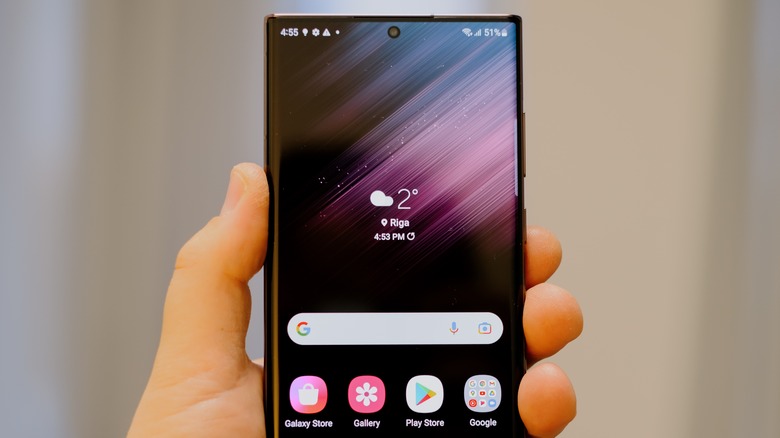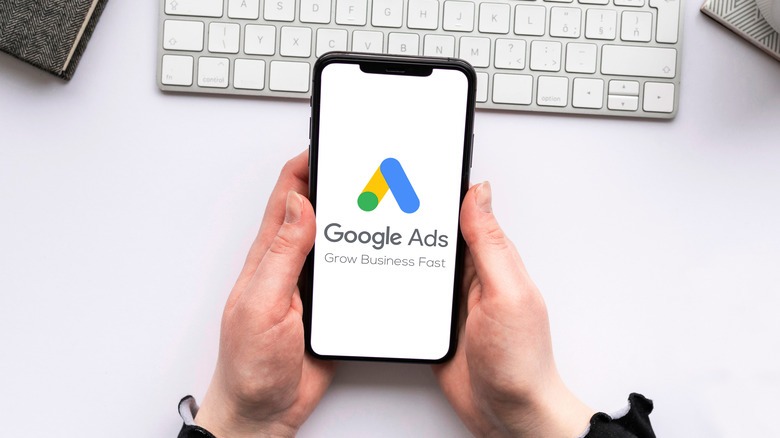Google Says It'll Crush The Worst Ads On Android
Google has had a checkered history with ads. The company is well-known for providing its comprehensive Google Ads service to advertisers around the world, though it has a less popular standing among those who do not want to be advertised to — particularly users of Android phones who are often ambushed by advertisements they have no interest in viewing. Some of the aforementioned ads, such as those that appear on the home screens of the Google TV and Android TV apps, can evidently force users to listen to audio at full blast, even when their devices are silenced.
Google may be alleviating the negative impact of its ads on many Android users in the future, at least according to a series of upcoming policy changes announced by the supergiant internet company on July 27. These policy changes have been backed up by Esper Senior Technical Editor Mishaal Rahman on Twitter. If you're unfamiliar with the blog, Esper is a critical source for updates surrounding Android DevOps. He clarified the pending policy changes in a tweet thread, saying, "Effective 9/30/2022: Unexpected interstitial ads are prohibited. These include full screen interstitial ads of all formats that show unexpectedly or that aren't closeable after 15s. Interstitials that don't interrupt the user or the user opted into can persist > 15s."
Ads aren't the only thing that will change. Beginning on November 1, all Google Play apps will need to respect FLAG_SECURE and VPNService, which basically means that apps will no longer be able to peer into the sensitive data shown in other apps or create remote tunnels to other devices without being explicitly marked as a VPN app.
How and when Google ads will change
Google's newly-announced policy changes won't take effect for at least a few months, and it seems like they'll be staggered. As mentioned by Rahman on Twitter, the (arguably) most important update is coming on September 30 when Google is planning to enforce its new ad guidelines for all Google Play apps. There will be a pretty strict set of rules to follow here, and Google basically describes any ad that shows up in an unexpected or inconvenient scenario as against the rules of its new policy. The exact words used are: "Full screen interstitial ads of all formats (video, GIF, static, etc.) that show unexpectedly, typically when the user has chosen to do something else, are not allowed. ... Ads that appear during game play at the beginning of a level or during the beginning of a content segment are not allowed. ... Full screen video interstitial ads that appear before an app's loading screen (splash screen) are not allowed."
It goes on like that for a few more paragraphs, but the gist is that Google will probably end up cracking down on the worst offenders. If that's what ends up happening, it could make Android attractive once again to users who were driven away by egregious ads. Aiding this effort is a push to target fake or misleading apps. Effective on August 31, apps that falsely identify an association or relationship with another app, developer, or company will be banned from the Google Play Store. Meanwhile, a new policy on September 30 will enforce a rule wherein each app developer will need to clearly disclose a cancellation process if their app requires a subscription.

